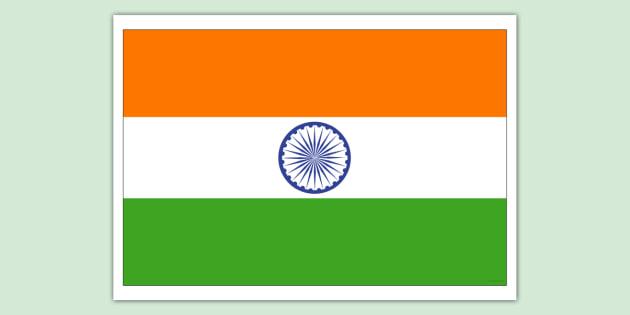India’s involvement in recent Russian military exercises has complicated the European Union’s efforts to strengthen strategic ties with New Delhi, according to officials and analysts. As the EU seeks to position India as a key partner amid shifting global alliances, its overtures face challenges due to India’s continued defense cooperation with Moscow. This development comes at a time when Europe is striving to present a united front in response to Russia’s actions in Ukraine, highlighting the delicate balancing act in international diplomacy.
India’s Role in Russian War Games Challenges EU’s Strategic Influence
India’s strategic engagement in the recent Russian military exercises marks a significant divergence from the European Union’s expectations of aligning New Delhi closer to Western geopolitical interests. While the EU has been actively promoting partnership frameworks aimed at strengthening ties through economic cooperation and security dialogues, India’s choice to participate in these war games signals its intent to maintain an independent foreign policy stance. This move complicates Brussels’ efforts to build a cohesive front against Russia’s assertive posturing in Eastern Europe.
The decision also underscores the multifaceted nature of India’s defense diplomacy, which balances relationships with both Western powers and traditional allies like Russia. Key factors influencing India’s participation include:
- Long-standing military procurement ties established over decades.
- Strategic autonomy in foreign policy avoiding entanglement in bloc politics.
- Regional security concerns necessitating diversified defense partnerships.
| Participant | Role in War Games | Strategic Implication |
|---|---|---|
| India | Active military drills and coordination | Reinforces defense ties with Russia |
| Russia | Host and lead organizer | Projecting military influence |
| EU | Observer & diplomatic pressure | Challenges strategic cohesion |
Implications for EU-India Diplomatic and Economic Relations
India’s involvement in Russian military exercises has introduced a palpable strain in its burgeoning diplomatic rapport with the European Union. Brussels views the move as a contradictory step amidst India’s repeated affirmations of strategic autonomy and its increasing rapprochement with Western powers. The EU, which seeks to position India as a reliable partner in counterbalancing China’s influence in Asia, now faces a challenge in aligning this narrative with India’s evident willingness to engage in Moscow-led defense collaborations. This dynamic risks diluting the effectiveness of EU’s new partnership frameworks focused on security, technology transfer, and climate collaboration.
Economically, the repercussions could manifest in more subtle yet impactful ways. The EU’s agenda to deepen trade ties and investment opportunities with India may encounter hurdles as member states reassess the geopolitical risks involved. Companies eyeing India’s market might hesitate if ties with Russia cast a shadow over India’s alignment with EU’s sanction policies and shared democratic values. Key concerns include:
- Compliance risks: EU firms wary of indirect exposure to sanctions violations.
- Trade policy uncertainty: Potential recalibrations of bilateral agreements to reflect geopolitical shifts.
- Investment decisions: Hesitation in sectors sensitive to defense and dual-use technologies.
| Aspect | Potential Impact | EU-India Response | |||||||||||||||||||||||||
|---|---|---|---|---|---|---|---|---|---|---|---|---|---|---|---|---|---|---|---|---|---|---|---|---|---|---|---|
| Diplomatic Trust | Erosion of confidence in strategic alignment | Increased high-level dialogues to reaffirm commitments | |||||||||||||||||||||||||
Trade It looks like your table was cut off at the “Trade” row. Based on the content and structure, I can help you complete the missing part and provide a coherent summary or expansion if you want. Here’s a possible completion of the table and continuation of the analysis:
Summary and Context: India’s participation in Russian military drills complicates the narrative the EU is trying to build around India being a strategic partner balancing China’s regional influence. It introduces uncertainty both diplomatically and economically. The EU’s responses appear focused on maintaining dialogue, managing risk, and adapting cooperation frameworks to maintain momentum in broader partnership goals, especially in security and technology sectors. If you want, I can help you expand on specific points, suggest policy recommendations Strengthening EU Engagement Strategies to Reclaim India’s TrustIndia’s decision to participate in the recent Russian military exercises has introduced a complex layer of diplomatic challenge for the European Union, undermining its efforts to position itself as a key strategic partner. This move not only signals New Delhi’s nuanced balancing act between East and West but also complicates the EU’s attempts to deepen cooperation on security and economic fronts. European policymakers are now confronted with the reality that India’s geopolitical priorities may diverge significantly from the EU’s expectations, calling for a reassessment of engagement tactics. In response, EU strategists are considering a more tailored and pragmatic approach that respects India’s sovereign choices while emphasizing areas of mutual benefit. Key components of this recalibrated strategy include:
|




